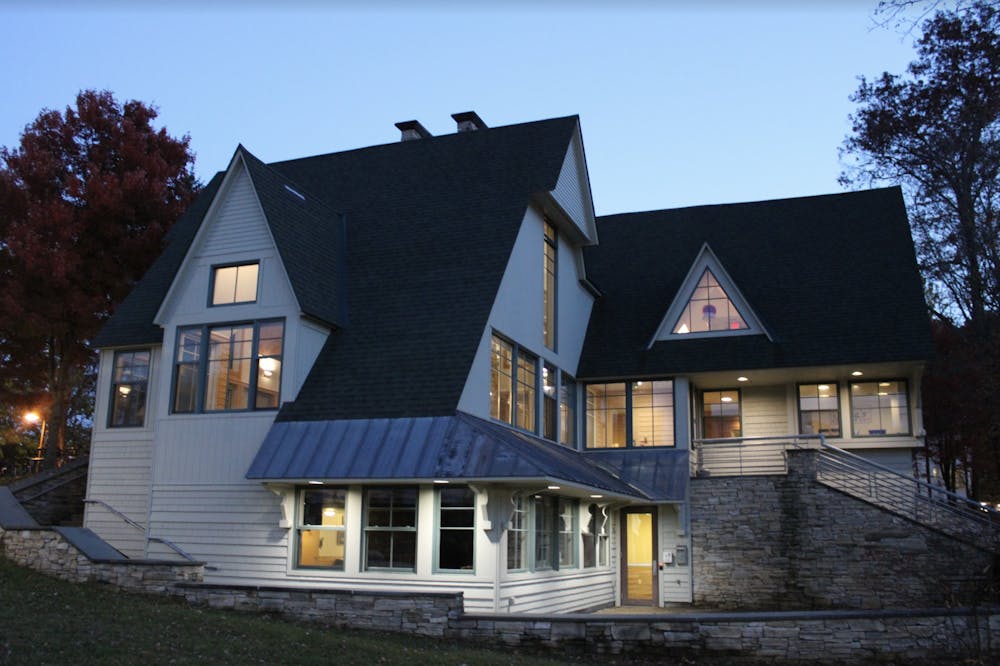Middlebury’s Community Council voted unanimously to pass a recommendation on to Residential Life and the Student Activities Office (SAO) that would ban social house pledge processes from student organizations. It also recently recommended that social house oversight transition from the domain of the Community Council to that of Residential Life.
Social house oversight entails conducting biennial house reviews to ensure that the houses fulfill their missions and adhere to all college policies, reviewing applications for new social houses and having the ability to revoke social house status, according to Citlali Aguilera-Rico ’23, co-chair of Community Council.
Social houses were established in 1991 following the termination of Greek life at Middlebury in the same year. Middlebury has five social houses: Chromatic, The Mill, PALANA, Tavern and Xenia, each founded on a common interest or for an affinity group. The organizations all have houses on campus, but members are not required to live in the physical house. Some students do elect to live there, but for the rest, the house serves as a social gathering space for members and Middlebury students at large.
SAO and Residential Life will ultimately determine how the Community Council’s recommendation of removing pledge processes is implemented.
“Our power is in making recommendations that are representative of our entire community, so faculty, staff and students,” Aguilera-Rico said, regarding Community Council’s work.
Community Council chose to address social house pledge processes because they felt these affect not only students but the entire Middlebury College community.
“This is an issue that not only impacts students, but it also impacts staff that need to facilitate anti-hazing training and management of these organizations, so it’s really a whole campus kind of issue,” Aguilera-Rico said.
The Community Council recommendation cites the student activity fee that is a part of Middlebury students’ tuition as a central reason they recommend pledge processes be eliminated. The 2022–23 student activity fee is $460.
“If everybody is paying this fee, why should they have to go through a lengthy pledge process to become a member of an organization that they essentially are paying to help allow to run,” Aguilera-Rico said.
The recommendation also specifies inclusivity as an aim.
“Traditionally, pledge processes tend to be very exclusionary and kind of create a non-inclusive atmosphere, which is something that Middlebury has stated in the past they’re not about,” Aguilera-Rico said. “In general, the pledge process has historically been associated with hazing.”
Middlebury has made an active effort to combat hazing in social house pledging. The Middlebury Handbook outlines its policy against hazing, stating that hazing is antithetical to Middlebury’s goals as an institution. Social houses and sports teams have historically been the groups most commonly reported for hazing new members, including Tavern, one of the few social houses previously accused of hazing that still exists today. The Campus’ last reporting on hazing allegations at Tavern was about incidents in 2011.
Tavern, also known as Omega Alpha, is currently conducting its pledge process.
Leslie Ramirez ’25, a prospective new member of Tavern, is participating in the house’s process. “From the start, Tav was very stern about their no-hazing policies,” Ramirez said. “I have felt very safe in the house and all of the events.”
Jimmy Morales ’23, president of Tavern, spoke to the value of Tavern's current pledge process.
“The pledge process is crucial to us because we want to ensure we have a community that understands our values,” Morales said.
This semester, Tavern has roughly 60 new members participating in pledge, also known as the education process. Morales described Tavern’s pledge process as a period of new members getting to know one another as well as the current members of the house.
“We want people to feel welcomed into the house. The process isn’t meant to shame, embarrass or harm anyone,” Morales said. “Anyone attempting to haze a pledge will be removed immediately.”
“Getting to know the membership a bit more and see how welcoming and genuinely interested in getting to know us has been lovely,” Ramirez said. She explained that she wanted to join Tavern for the house’s community service opportunities and to get involved with another social house, as she is already a member of PALANA.
PALANA (Pan-African, Latino, Asian and Native American) is Middlebury’s newest social house, gaining official status in 2019 after previously existing as an academic interest house at 97 Adirondack View. PALANA also holds a pledge each semester for new members.
“The process is important because we use it to get to know the incoming members and allow them to feel comfortable with the house and the members,” said Chris Saavedra ’24, president of PALANA.
Saavedra noted that the PALANA pledge is only one week long, a length that is fairly short compared to those of other social houses. He emphasized that PALANA aims to provide a safe space for BIPOC students and create an open and welcoming environment.
“We do not think ‘pledge’ should be asking the students to do more than they should,” Saavedra said. “We promote diversity and inclusion and believe that if we want to abide by these principles, we should not have students proving themselves to us.”
Correction 10/27/2022, 1:15 p.m.: Due to an editing error, an older version of this article was published on The Campus' website this morning. The article has been replaced with the most udpated version, which is the same as the story that appeared in the Oct. 27, 2022 print edition.

Susanna Schatz ‘24 (she/her) is the Senior News Editor.
She previously served as Local Editor, Staff Writer, and Visuals Artist for The Campus. She is an English major and Gender, Sexuality, and Feminist Studies minor.
Susanna is the social media and marketing intern for a small business started by Midd Alums, Treeline Terrains. In her free time you’ll find her taking in the Vermont outdoors hiking, swimming, skiing, reading in an Adirondack chair, or painting the scenery.




